Links to external sources may no longer work as intended. The content may not represent the latest thinking in this area or the Society’s current position on the topic.
Collective animal behaviour through time - POSTPONED
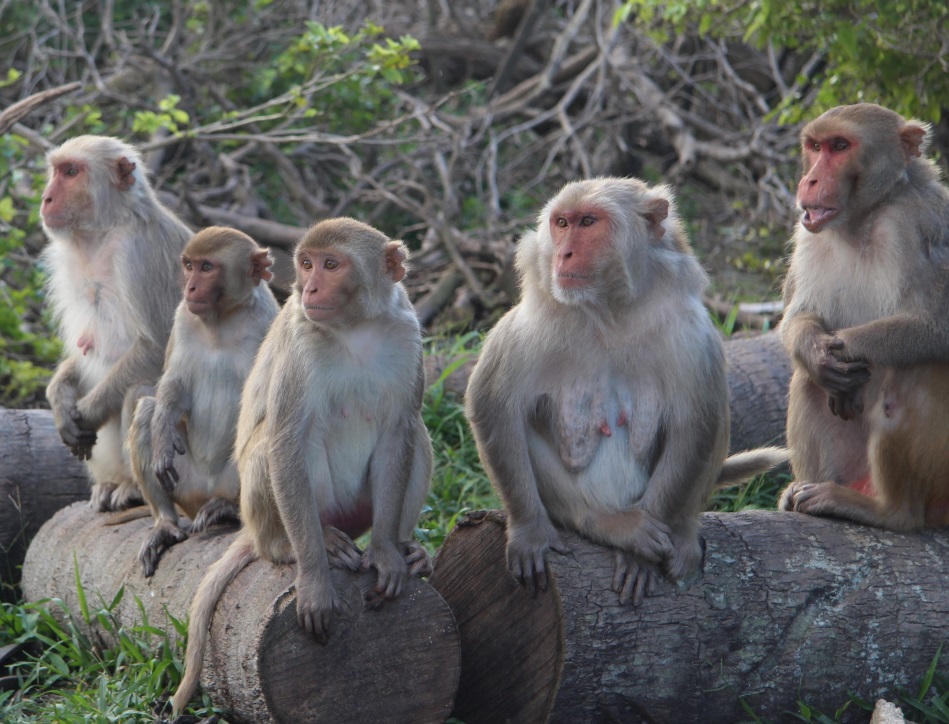
This meeting is postponed. More details to follow.
Scientific discussion meeting organised by Dr Christos Ioannou and Dr Kate Laskowski.
Great strides have been made in understanding the mechanisms underlying collective behaviour in animals using the complex systems approach common in the physical sciences. This work however focuses on snapshots of collective behaviour. The goal of this meeting is to integrate the study of collective behaviour over time: how does it develop and how does it evolve?
Speaker abstracts will be available closer to the meeting. Recorded audio of the presentations will be available on this page after the meeting has taken place.
Attending the event
This meeting is postponed. More details to follow.
Enquiries: contact the Scientific Programmes team.
Organisers
Schedule
Chair
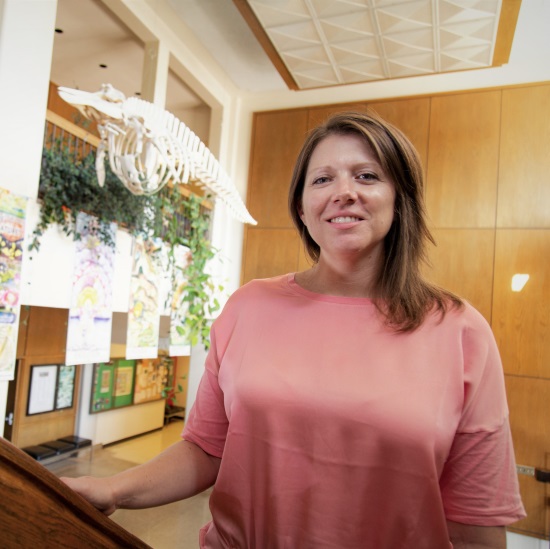
Dr Kate Laskowski, The University of California, Davis, USA

Dr Kate Laskowski, The University of California, Davis, USA
Dr Kate Laskowski is interested in investigating how evolution has shaped the developmental processes that generate behavioral individuality. She does this by generating replicate individuals and groups of the naturally clonal fish, the Amazon molly, allowing her to 'replay the developmental clock.' Kate obtained her Bachelor’s of Science at the University of Maryland Baltimore County and her PhD from the University of Illinois where she worked under Alison Bell. She then moved to Germany to work at the Leibniz Institute of Freshwater Ecology & Inland Fisheries before joining the Department of Evolution & Ecology at the University of California Davis in 2019.
| 08:00 - 08:05 | Welcome by the Royal Society and lead organiser |
|---|---|
| 08:05 - 08:35 |
Development of collective behaviour in zebrafish
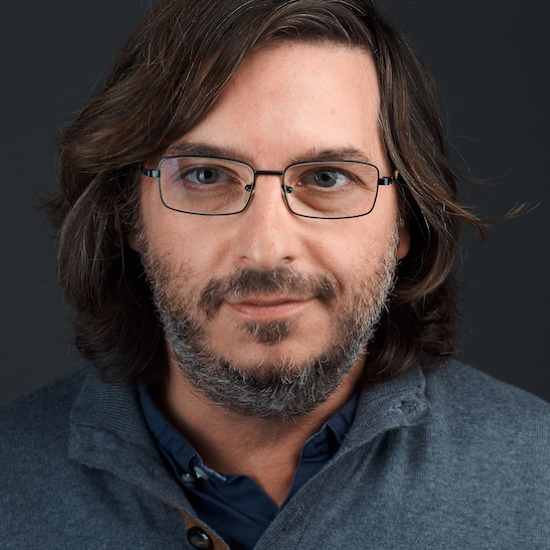
Professor Gonzalo de Polavieja, Champalimaud Foundation, Portugal

Professor Gonzalo de Polavieja, Champalimaud Foundation, PortugalGonzalo is a Senior Principal Investigator at Champalimaud Research, where he leads a team applying mathematics to better understand group behaviour and to develop more formal approaches to learning. He obtained his PhD in Physical Sciences from the University of Oxford, where he studied some aspects of the classical limit of Quantum Mechanics. He switched to Neuroscience as a postdoc in the Laughlin lab (Cambridge University, UK). He then moved to the Department of Theoretical Physics (UAM, Madrid) to build a neurophysiology lab. His team there developed models to understand wiring and neural coding in several species. Also, they built frameworks to study collective behaviour. He moved to Champalimaud Research in 2015 to continue the work in group behaviour, for which his lab has created machine learning tools and models. Since 2017, with Fernando Martin-Maroto, he has been thinking about how to build formal frameworks in which one can study learning in some mathematical detail. |
| 08:35 - 08:45 | Discussion |
| 08:45 - 09:15 |
TBC

Dr Kate Laskowski, The University of California, Davis, USA

Dr Kate Laskowski, The University of California, Davis, USADr Kate Laskowski is interested in investigating how evolution has shaped the developmental processes that generate behavioral individuality. She does this by generating replicate individuals and groups of the naturally clonal fish, the Amazon molly, allowing her to 'replay the developmental clock.' Kate obtained her Bachelor’s of Science at the University of Maryland Baltimore County and her PhD from the University of Illinois where she worked under Alison Bell. She then moved to Germany to work at the Leibniz Institute of Freshwater Ecology & Inland Fisheries before joining the Department of Evolution & Ecology at the University of California Davis in 2019. |
| 09:15 - 09:25 | Discussion |
| 09:25 - 09:50 | Coffee |
| 09:50 - 10:20 |
Ageing in a social context
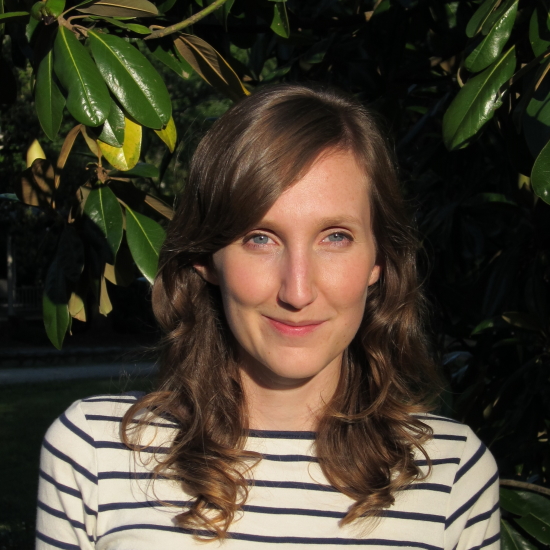
Dr Lauren Brent, University of Exeter, UK

Dr Lauren Brent, University of Exeter, UKLauren Brent is an Associate Professor of Ethology in the Centre for Research in Animal Behaviour at the University of Exeter. Her research asks why social relationships evolved and how they are maintained. Within groups, individuals differ in their tendencies to interact with others and in how deeply embedded they are in their social networks. Across group-living species, the patterning of social interactions and network structures vary. Investigating social variation within groups and across species allows us to determine the mechanisms that drive social relationships, establish their impact on individual health, ageing, life-history, and fitness, and to ultimately draw conclusions about their evolved function. Dr Brent has co-founded two initiatives aimed at open access, collaborative research: the Cayo Biobank Research Unit, and MacaqueNet, which are respectively supported by the National Institutes of Health and a European Research Council Consolidator Grant, FriendOrigins. |
| 10:20 - 10:30 | Discussion |
| 10:30 - 11:00 |
Early behavioural plasticity in slime molds

Dr Audrey Dussutour, CNRS, France

Dr Audrey Dussutour, CNRS, FranceAudrey Dussutour, a Frenchborn ethologist, is a CNRS Senior Researcher in the Animal Cognition Department in Toulouse (Paul Sabatier University). She studies collective behavior and cognition, working with ant colonies and slime molds. Her topics of interest include decision-making, foraging behavior, and integrative nutrition. In 2021, Audrey was awarded a Medal by the CNRS and given the French order of merit by the President of the French Republic, for her involvement in outreach activities. An example of her outreach efforts includes a citizen science project involving 5000 schools with the aim to engage kids in science. French astronaut Thomas Pesquet onboard the ISS and 350 000 kids in schools were asked to run the same experiment to observe if slime molds behave differently in microgravity. The results will be revealed in 2022. |
| 11:00 - 11:10 | Discussion |
| 11:10 - 12:10 | Lunch |
Chair

Dr Lauren Brent, University of Exeter, UK

Dr Lauren Brent, University of Exeter, UK
Lauren Brent is an Associate Professor of Ethology in the Centre for Research in Animal Behaviour at the University of Exeter. Her research asks why social relationships evolved and how they are maintained. Within groups, individuals differ in their tendencies to interact with others and in how deeply embedded they are in their social networks. Across group-living species, the patterning of social interactions and network structures vary. Investigating social variation within groups and across species allows us to determine the mechanisms that drive social relationships, establish their impact on individual health, ageing, life-history, and fitness, and to ultimately draw conclusions about their evolved function. Dr Brent has co-founded two initiatives aimed at open access, collaborative research: the Cayo Biobank Research Unit, and MacaqueNet, which are respectively supported by the National Institutes of Health and a European Research Council Consolidator Grant, FriendOrigins.
| 12:10 - 12:40 |
Ontogenesis of the self-assembling swarm: building and maintaining collective function in a variable world
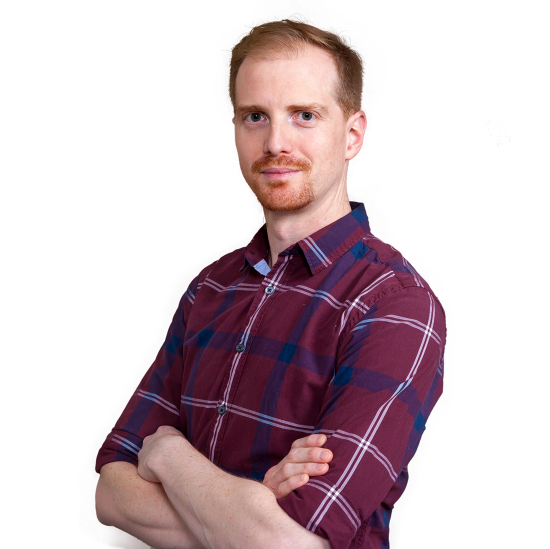
Dr Simon Garnier, New Jersey Institute of Technology, USA

Dr Simon Garnier, New Jersey Institute of Technology, USASimon Garnier is an Associate Professor in the Federated Department of Biology at the New Jersey Institute of Technology (NJIT). He is the head of the Swarm Lab, an interdisciplinary research lab that studies the mechanisms underlying Collective Behaviors and Swarm Intelligence in natural and artificial systems. His research aims to reveal the detailed functioning of collective intelligence in systems as diverse as ant colonies, human crowds, or robotic swarms. The Swarm Lab focuses in particular on the mechanisms of information transfer and integration in large groups that can lead to adaptive (or 'intelligent') collective responses to environmental challenges. |
|---|---|
| 12:40 - 12:50 | Discussion |
| 12:50 - 13:20 |
Developmental stress and the collective
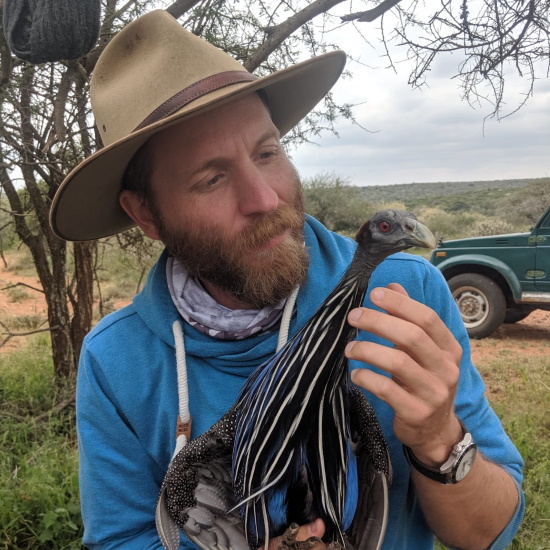
Dr Damien Farine, University of Zurich, Switzerland

Dr Damien Farine, University of Zurich, SwitzerlandDamien Farine received his DPhil from the University of Oxford in 2014. He subsequently held postdoctoral positions working on birds at Oxford and on baboons at UC Davis. He was then appointed as a principal investigator at the Max Planck Institute of Animal Behavior, before becoming a group leader at the University of Zurich and the Australian National University. His group is focused on studying how social behaviour shapes how individuals interact with their environment. |
| 13:20 - 13:30 | Discussion |
| 13:30 - 13:55 | Tea |
| 13:55 - 14:25 |
Social network structure and social selection depend on nutritional environment in Drosophila

Dr Julia Saltz, Rice University, USA

Dr Julia Saltz, Rice University, USAI am interested in the genetics and evolution of behaviour, especially within-population variation in behaviour. Social behaviour, in particular, represents an exciting opportunity to study developmental and evolutionary feedbacks because the social environment itself can change and evolve. Learning, our other main focus, represents a powerful and common mechanism by which animals change their behaviour, but the evolution of learning is still poorly understood. These areas of focus illustrate how population-genetic variation is orchestrated by a complex interplay between genetic variation and experience in the environment. To answer these questions, Dr Saltz draws inspiration from, and works to integrate, animal behaviour, psychology, evolutionary ecology, and genetics. Dr Saltz completed an AB at Princeton University, a PhD with Andy Sih in the Population Biology Graduate Group at the University of California, Davis, and a postdoc with Sergey Nuzhdin at the University of Southern California. Dr Saltz teaches Animal Behavior (BIOS 321) and a variety of undergraduate research courses (BIOS 310, 401, NEUR 310, etc). Dr Saltz participates in teaching in the Graduate Student Core Course (BIOS 569) and other graduate courses (BIOS 541, 561, 801). Dr Saltz is a Faculty Affiliate for the Center for the Study of Women, Gender, and Sexuality (CSWGS) and a member of the School of Natural Sciences Diversity, Equity, and Inclusion leadership group. |
| 14:25 - 14:35 | Discussion |
| 14:35 - 15:05 |
Emergence and repeatability of leadership and coordinated motion in stickleback fish (Gasterosteus aculeatus) shoals
Studies of self-organising groups like schools of fish or flocks of birds has sought to uncover the behavioural rules individuals use (local-level interactions) to coordinate their motion (global-level patterns). However, empirical studies tend to focus on ‘one-off’ events and study groups that are in a ‘coordinated’ behavioural state. As a result we have a poor understanding of if and how behavioural rules develop and/or are maintained in groups. This talk will review evidence for emergence and repeatability of coordinated motion and present a case study with shoals of stickleback fish (Gasterosteus aculeatus). Shoals were introduced to a simple environment, and their position recorded from video using a bespoke tracking algorithm. At the start of trials shoals were uncoordinated in their motion and quickly transitioned to a coordinated state with defined individual leader-follower roles. These leader-follower identities were found to be repeatable across two trials, and the onset of coordination was quicker during the second trial. The emergence and repeatability of coordinated motion in stickleback fish shoals described likely benefits wild individuals living in a system with high fission-fusion dynamics and non-random patterns of association between subsets of individuals. 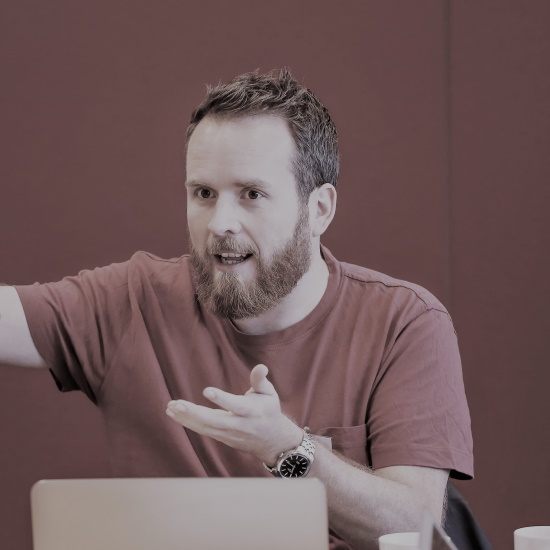
Dr Andrew King, Swansea University, UK

Dr Andrew King, Swansea University, UKDr Andrew King is Associate Professor at Swansea University, UK. He has previously worked at The Zoological Society of London, University College London, The Royal Veterinary College, and the University of Cambridge in the UK, and has held visiting positions in Germany (MPI for Human Development), South Africa (University of Cape Town) and Australia (University of Sydney). His research group study animal social behaviour in a range of animal systems but some favourites are fish, sheep, and baboons. His research has strong applied themes, and he works across disciplines and sectors to apply behavioural studies to topics ranging from wildlife management to swarm robotics. |
| 15:05 - 15:15 | Discussion |
| 15:15 - 15:30 | Discussion/Overview (future directions) |
Chair

Dr Andrew King, Swansea University, UK

Dr Andrew King, Swansea University, UK
Dr Andrew King is Associate Professor at Swansea University, UK. He has previously worked at The Zoological Society of London, University College London, The Royal Veterinary College, and the University of Cambridge in the UK, and has held visiting positions in Germany (MPI for Human Development), South Africa (University of Cape Town) and Australia (University of Sydney). His research group study animal social behaviour in a range of animal systems but some favourites are fish, sheep, and baboons. His research has strong applied themes, and he works across disciplines and sectors to apply behavioural studies to topics ranging from wildlife management to swarm robotics.
| 08:00 - 08:30 |
The wisdom of flocks: from collective intelligence to cultural evolution
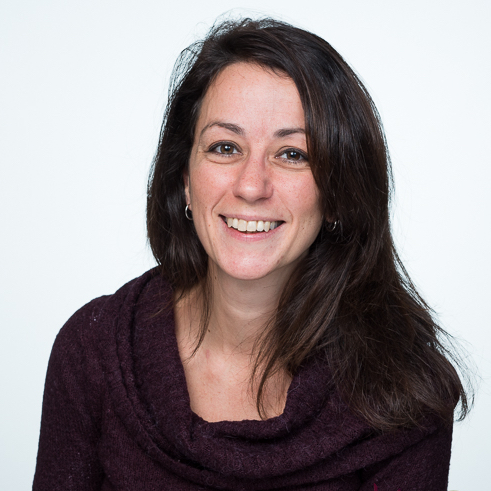
Professor Dora Biro, University of Oxford, UK and University of Rochester, USA

Professor Dora Biro, University of Oxford, UK and University of Rochester, USADora Biro received her PhD in Zoology from the University of Oxford. She subsequently held a JSPS postdoctoral research fellowship and a visiting professorship at the Primate Research Institute of Kyoto University, Japan, before returning to Oxford as a Royal Society University Research Fellow in 2007. She was appointed Associate Professor at the Department of Zoology and Tutorial Fellow of St Hugh’s College, University of Oxford in 2013, and Professor of Animal Behaviour in 2019. She is currently Professor of Brain and Cognitive Sciences at the University of Rochester, USA. Her research interests are centred on animal cognition, particularly in the contexts of navigation, tool use, culture and collective decision-making |
|---|---|
| 08:30 - 08:40 | Discussion |
| 08:40 - 09:10 |
Revealing universal principles of decision-making in neural and animal collectives

Professor Iain Couzin, Max Planck Institute of Animal Behavior, Germany

Professor Iain Couzin, Max Planck Institute of Animal Behavior, GermanyIain Couzin is Director of the Max Planck Institute of Animal Behavior and the German Research Foundation Cluster of Excellence 'Centre for the Advanced Study of Collective Behaviour' at the University of Konstanz, Germany. Previously he was a full Professor in Ecology and Evolutionary Biology at Princeton University. His work aims to reveal the fundamental principles that underlie evolved collective behaviour, and consequently includes the study of a wide range of biological systems, from neural collectives to insect swarms, fish schools and primate groups. In recognition of his research he has been recipient of the Searle Scholar Award in 2008, Popular Science’s 'Brilliant 10' Award in 2010, National Geographic Emerging Explorer Award in 2012, the Scientific Medal of the Zoological Society of London in 2013, a Web of Science Global Highly Cited Researcher since 2018, the Lagrange Prize in 2019, and the Leibniz Prize, Germany’s highest research honour, in 2022. |
| 09:10 - 09:20 | Discussion |
| 09:20 - 09:45 | Coffee |
| 09:45 - 10:15 |
The evolution and emergence of inter-group cooperative behaviour
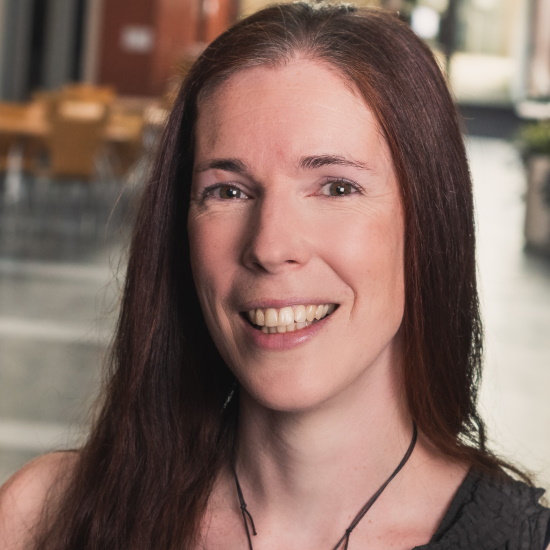
Dr Elva Robinson, University of York, UK

Dr Elva Robinson, University of York, UKElva Robinson studies the organisation of social insect societies, combining empirical and modelling work to identify the simple rules followed by individual members of a colony, and to determine how they interact to produce adaptive group-level behaviours. Elva began working in this area with an interdisciplinary PhD at the University of Sheffield. Her post-doctoral work at the University of Bristol involved pioneering a new technique for studying ants: using tiny radio-tags to monitor and manipulate individual ants’ access to information. She moved to the University of York on a Royal Society Dorothy Hodgkin Fellowship in the York Centre for Complex Systems Analysis and is now a Senior Lecturer in Ecology in the Department of Biology. Her current research spans from models and controlled laboratory experiments advancing the theoretical understanding of the organisation of social behaviour, through to ecological fieldwork investigating the adaptive significance and applied consequences of sociality in insects. |
| 10:15 - 10:25 | Discussion |
| 10:25 - 10:55 |
Selection for individually optimal decision making can lead to optimal group decisions or to information cascades
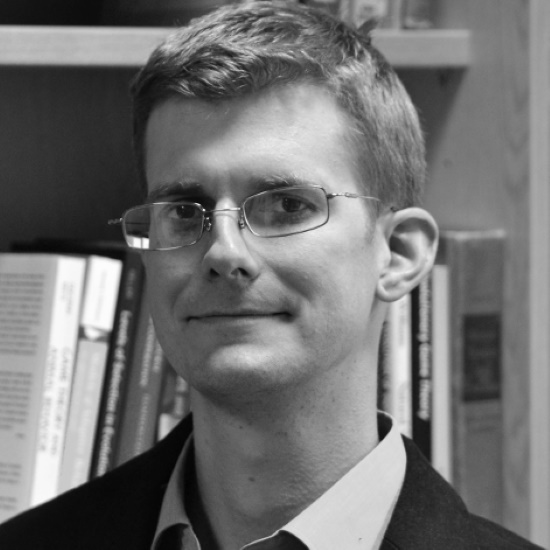
Professor James Marshall, Opteran Technologies and The University of Sheffield, UK

Professor James Marshall, Opteran Technologies and The University of Sheffield, UKJames Marshall is Professor of Theoretical and Computational Biology at the University of Sheffield, and Chief Science Officer at Opteran Technologies. His interests span collective behaviour, evolutionary theory, and decision theory. Recently he has moved towards using robots as a testbed for the models he works on, and in 2020 co-founded Opteran as a spinout from the University of Sheffield, to develop a new approach for robot autonomy based on reverse-engineering insect brains. |
| 10:55 - 11:05 | Discussion |
| 11:05 - 12:05 | Lunch |
Chair
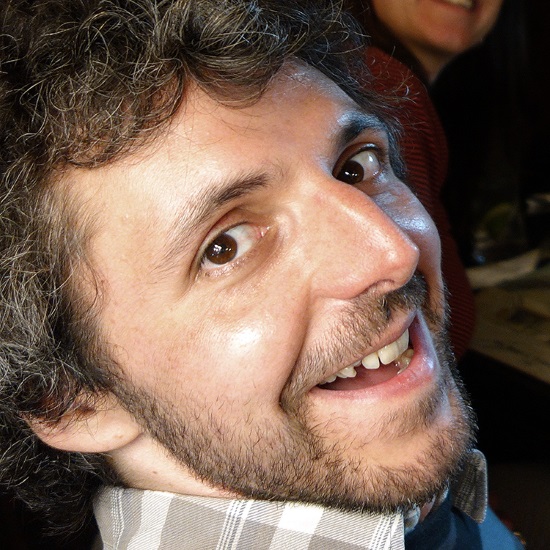
Dr Christos Ioannou, University of Bristol, UK

Dr Christos Ioannou, University of Bristol, UK
Since first studying animal behaviour Dr Ioannou has been interested in the evolution of group living and how groups form and are maintained over short time scales. These interests were further shaped by their PhD with Professor Jens Krause at the University of Leeds and a postdoc with Professor Iain Couzin at Princeton University. Dr Ioannou is now an Associate Professor (Reader) in Behavioural Ecology at the University of Bristol. Their research has covered multiple aspects of group living, particularly the interaction between the behaviour of predators and social interactions in prey, and how inter-individual differences in groups interacts with group decision making. More recently, their research includes how predator and collective behaviour is affected by anthropogenic change in environmental variables, such as turbidity and anthropogenic noise. They use fish as a model system, both in the laboratory and in the field.
| 12:05 - 12:35 |
Stochastic assortment and the evolution of costly traits in animal groups
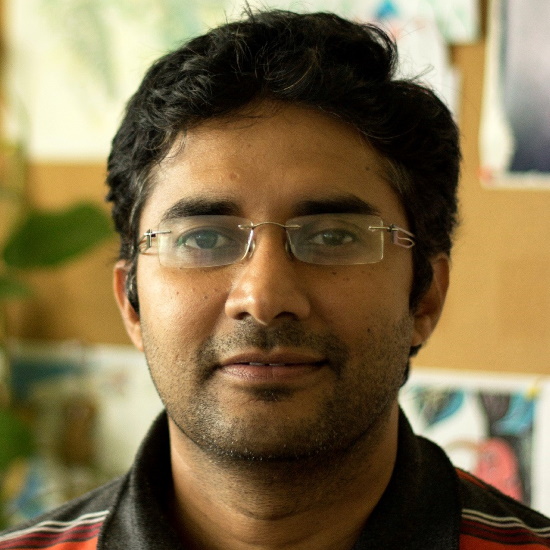
Dr Vishwesha Guttal, Indian Institute of Science, India

Dr Vishwesha Guttal, Indian Institute of Science, IndiaVishwesha (Vishu) Guttal is fascinated by the patterns and functions of self-organisation in the biological world. He did his PhD in Physics with Jayaprakash (at The Ohio State University, USA), working on applying tools of physics to ecosystem self-organisation. He did his postdoc with Iain Couzin at Princeton University, working on the evolution of collective motion in animal groups. Vishu is currently an Associate Professor at the Centre for Ecological Sciences at the Indian Institute of Science where he and his lab members use theory, computation, experiments and field work to understand patterns and functions of collective motion and more broadly self-organising ecosystems. |
|---|---|
| 12:35 - 12:45 | Discussion |
| 12:45 - 13:15 |
The adaptive benefits of collective antipredator behaviour
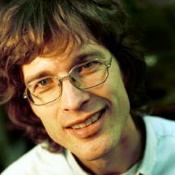
Professor Jens Krause, Leibniz Institute of Freshwater Ecology and Inland Fisheries, Germany

Professor Jens Krause, Leibniz Institute of Freshwater Ecology and Inland Fisheries, GermanyJens Krause is a behavioural ecologist with a strong interest in collective behaviour and social networks. He has published a number of books (Living in Groups, OUP; Fish Cognition and Behavior, Wiley/Blackwells; Exploring Animal Social Networks, PUP; Animal Social Networks, OUP) and articles on the mechanisms and functions of living in groups. He is currently Professor for Fish Biology and Ecology in the Faculty of Life Science at the Humboldt University Berlin, Head of Department at the Leibniz-Institute of Freshwater Ecology and Inland Fisheries and on the executive board of the excellence cluster 'Science of intelligence'. He started his university education at the Free University Berlin and obtained his PhD from St John’s College Cambridge, UK, followed by postdocs at Mount Allison University, Canada, and Princeton University, USA, and held a Professorship for behavioural ecology at Leeds University, UK, for several years before moving back to Berlin in 2009. |
| 13:15 - 13:25 | Discussion |
| 13:25 - 13:50 | Tea |
| 13:50 - 14:20 |
A comparative perspective on collective behaviour
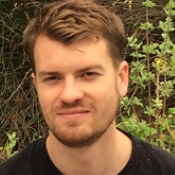
Dr Stephen Montgomery, University of Bristol, UK

Dr Stephen Montgomery, University of Bristol, UKDr Montgomery's primary interests are focused around how brains and behaviour evolve. He did his PhD on primate brain evolution with Dr Nick Mundy, at the University of Cambridge, and then held a series of fellowships at Oxford and UCL, with Professor Judith Mank, before returning to Cambridge to establish his own group. He is currently a Senior Research Fellow, funded by a NERC Fellowship and an ERC Starter Grant, and Proleptic Senior Lecturer at the School of Biological Sciences, University of Bristol. His group is interested in how brains adapt to different environments, how changes in brain structure produce behavioural differences, and how selection navigates developmental and functional constraints that may limit or channel the adaptive response. They take a comparative approach to tackling these questions, comparing molecular and phenotypic data across species. |
| 14:20 - 14:30 | Discussion |
| 14:30 - 15:00 |
Transitions in collective behaviour across the major transition to superorganismality

Dr Seirian Summer, University College London, UK

Dr Seirian Summer, University College London, UK |
| 15:00 - 15:10 | Discussion |
| 15:10 - 16:00 | Panel discussion/Overview (future directions) |
